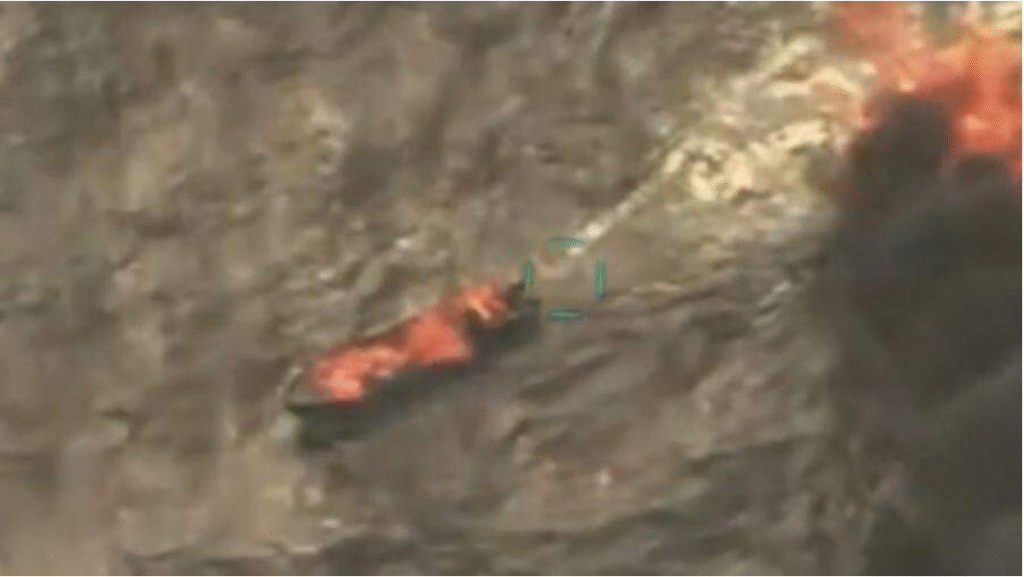WASHINGTON — The United States carried out two lethal strikes in the Eastern Pacific against vessels allegedly operated by “Designated Terrorist Organizations,” killing six men suspected of narcotics trafficking, Defense Secretary Pete Hegseth said Monday.
Hegseth said the operations, ordered Sunday by President Donald Trump, targeted two boats “associated with illicit narcotics smuggling” along a well-known trafficking corridor. Each vessel carried three men identified by U.S. intelligence as “narco-terrorists,” all of whom were killed. No U.S. personnel were injured.
The new strikes raise the death toll from Trump’s maritime offensive against Latin American drug cartels to 76 since operations began in early September.
“Yesterday, at the direction of President Trump, two lethal kinetic strikes were conducted on two vessels operated by Designated Terrorist Organizations,” Hegseth wrote on X. “These vessels were known by our intelligence to be associated with illicit narcotics smuggling, were carrying narcotics, and were transiting along a known narco-trafficking transit route in the Eastern Pacific.” Both strikes occurred in international waters, he added.
The Pentagon cast the attacks as part of a broader campaign to aggressively target transnational criminal networks at sea. “Under President Trump, we are protecting the homeland and killing these cartel terrorists who wish to harm our country and its people,” Hegseth said.
Neither the White House nor the Defense Department provided further details about the organizations involved, the U.S. assets used, or the quantity of narcotics allegedly on board.
The policy has drawn sharp criticism from human rights organizations and international law scholars, who denounce the operations as extrajudicial killings. Administration officials have defended the strikes, arguing that cartel members qualify as “unlawful combatants” under international law.
Legal analysts say the use of force against suspected traffickers in international waters rests on uncertain legal ground. Nations may act in self-defense or with another country’s consent, but maritime strikes on non-state actors risk diplomatic backlash unless supported by clear evidence of an imminent threat.
Trump has repeatedly described Latin American drug cartels as a “national security threat” and insists the operations fall within his executive authority.
While the latest strikes occurred near Latin America’s Pacific coast, most attacks reported so far have taken place in the southern Caribbean, targeting boats departing Venezuela — where senior officials have long been accused by the U.S. Justice Department of steering a state-backed narcotics network known as the Cartel de los Soles.
The maritime campaign coincides with the largest U.S. military deployment in the Caribbean in decades. The initial phase includes a Marine air-ground task force aboard the amphibious assault ship USS Iwo Jima and two San Antonio-class transport ships, carrying more than 2,000 Marines for rapid-response missions.
Nearly 10,000 U.S. personnel — Marines and Navy — are now operating in the region, backed by a cruiser, several destroyers, and a Los Angeles-class attack submarine equipped with precision-guided missiles. The administration has also ordered the world’s largest aircraft carrier, the USS Gerald R. Ford, to the Caribbean. Ten F-35 stealth fighters based in Puerto Rico give the United States overwhelming air superiority over Venezuela’s aging Sukhoi Su-30 and F-16 fleets.
By ANTONIO MARIA DELGADO/Miami Herald

